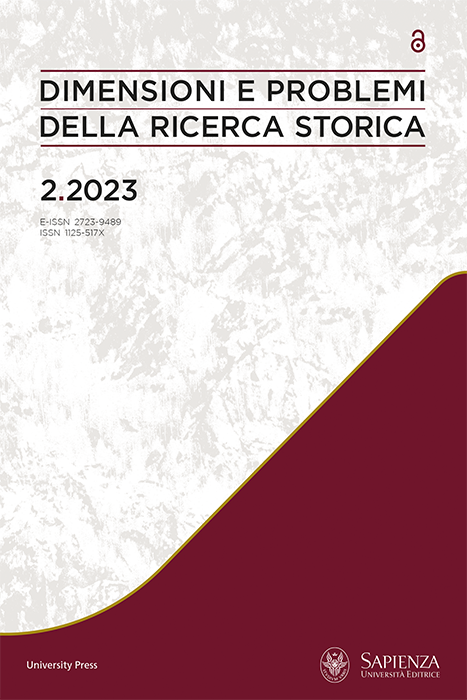Il patriziato veneziano tra eredità repubblicana e modelli monarchici
DOI:
https://doi.org/10.13133/2723-9489/1603Abstract
This essay aims to investigate whether in Venice there ever truly existed a prince comparable to other royal sovereigns, or whether we should speak of a republican “prince” proper, namely a representative figure devoid of actual power or authority. As early as the fifteenth century, the Venetian patriciate began to diminish the power of the Venetian dux (which had replaced the Byzantine Empire’s magister militum), in order to underscore the sovereignty of the Grand Council, in which all male patricians took part. This progressive limitation of his powers led to considering the doge as primus inter pares for internal interests of the ruling class, but failed to take into account that such a process would weaken the regality of the doge in the face of sovereigns from emerging states in Europe.
The downgrading of the Venetian doge’s precedence in European courts became emblematic of the diminishing political centrality of the Most Serene Republic in comparison to absolute states.
##submission.downloads##
Pubblicato
Fascicolo
Sezione
Licenza
Copyright (c) 2024 Dorit Raines

Questo lavoro è fornito con la licenza Creative Commons Attribuzione - Non commerciale - Condividi allo stesso modo 4.0 Internazionale.


